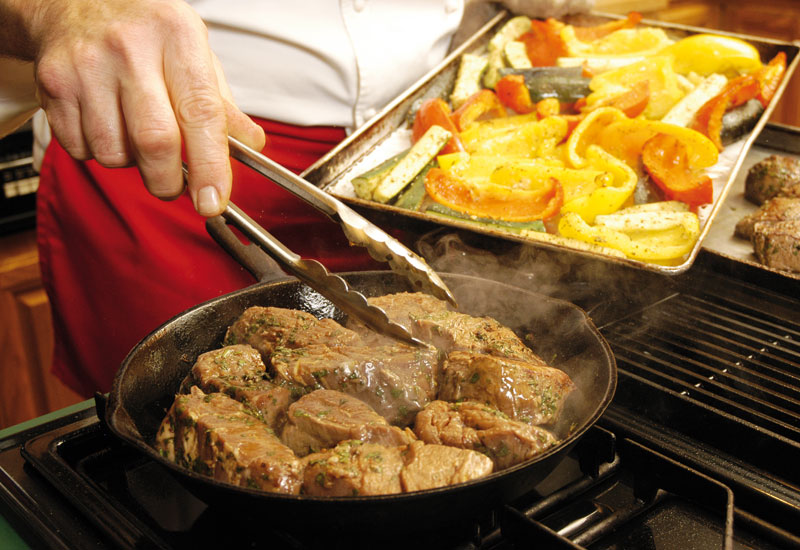Simplifying safety
With a background in psychology, Oakden realised that attempting to impose lofty-seeming food safety principles from the top-down would not cultivate lasting understanding. “We wanted to change our staff’s habits, which is psychologically a very difficult thing to do,” she said.
New teaching systems with an emphasis on behavioural techniques informed by psychological insights claim to be able to break down these learning barriers.
Subway has pioneered one such programme, named Menu Safe, and has seen some staggering results, according to Oakden.

| Advertisement |
Of the 25 stores that have begun the Menu Safe implementation process, three have completed it so far. One of those stores, situated in Al Ain, twice received 100% in its food safety inspections, something which Oakden said is “unheard of”.
This is despite the fact that inspectors are “incentivised to find inconsistencies,” according to Dave Shannon, operations manager of TSI international, the company that distributes the Menu Safe programme.
Oakden was keen to emphasise that the two occasions of 100% results were also achieved under two separate managers, something which credits the system for its effectiveness, rather than simply the effectiveness of the person in charge.
Some unexpected results have also stemmed from the new teaching system, as staff members have not only consistently maintained food safety practices but become proactive in wanting to improve them.
In particular the food safety passport that comes with the Menu Safe package has been embraced: “We included the option to stick your photo in the passport, but to be honest we only did it as a bit of a gimmick,” said Taylor.
“But we’ve found that about 90% of the people using the Menu Safe system tend to use it. For some of the people using the system this is the first formal recognition of learning that they have ever had, so it’s quite profound.”
The move to codify HACCP within the kitchen is welcomed by most chefs, who recognise that sharing responsibility is a necessity in order for food safety systems to work: “It will help us,” said Joe Vock, executive chef of the Taj Hotel in Dubai.
“In hotels the owner is first and foremost responsible, then the general manager and then the chef, and you need to be able to prove that you have done everything the right way. This will make sure that everyone is carrying some of that responsibility.”
As food safety increases in global importance and in terms of legislation, simpler systems of food safety that break down barriers to learning look set to thrive: “Education needs to extend to the entire food handling team and I welcome the idea of a more simple and efficient model of learning,” said Star’n’Bars’ Clayton.
He would like to see even more food safety regulation from the government: “The authorities need to consistently enforce, regulate and supervise the entire food chain, from supplier, through to production, to waiter and table top.”
Food safety facts
• More than 200 diseases are spread Through Food
Millions of people fall ill every year and many die as a result of eating unsafe food. Diarrhoeal diseases alone kill an estimated 1.5 million children annually, and most of these illnesses are attributed to contaminated food or water.
• Foodborne diseases are increasing Worldwide
Disease-causing organisms in food are transmitted far and wide by today’s interconnected global food-chains - escalating how often and where foodborne illnesses occur.
• Emerging diseases are tied to food Production
About 75% of the new infectious diseases affecting humans over the past 10 years were caused by bacteria, viruses and other pathogens that started in animals and animal products. Many of these diseases in people are related to the handling of infected domestic and wild animals during food production - in food markets and at slaughter houses.
• Chemical hazards through cooking can Contaminate food
Acrylamide, which may cause cancer, is formed from natural ingredients during the cooking of some foods at high temperatures (generally above 120 °C), including fried potato products, baked cereal products and coffee.
Source: World Health Organisation.









 Search our database of more than 2,700 industry companies
Search our database of more than 2,700 industry companies









